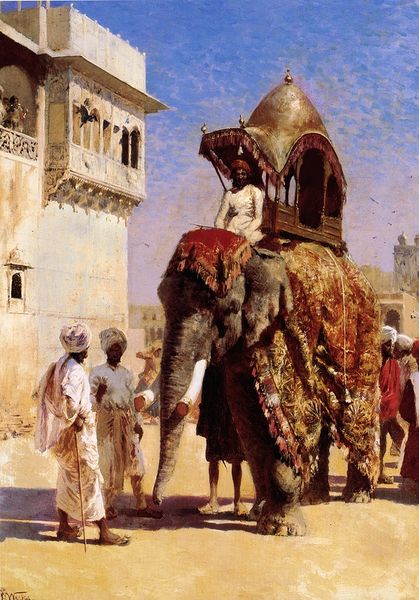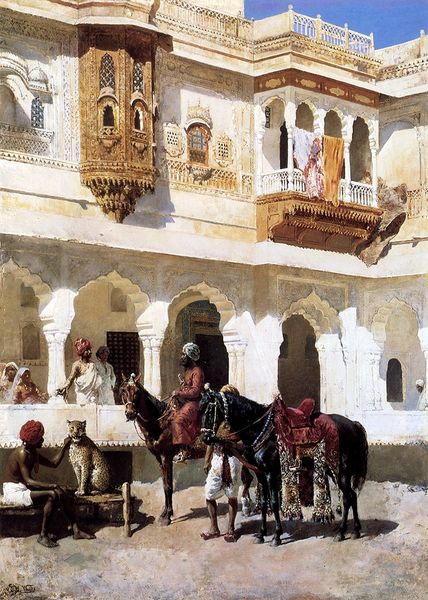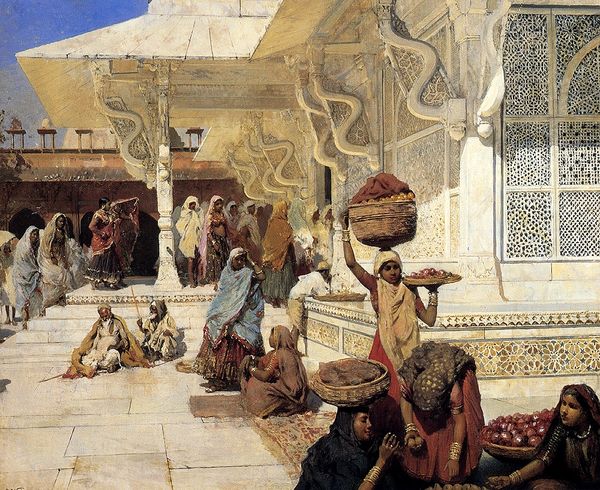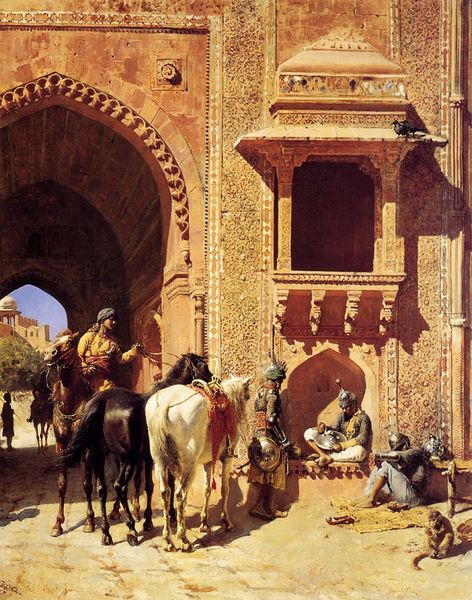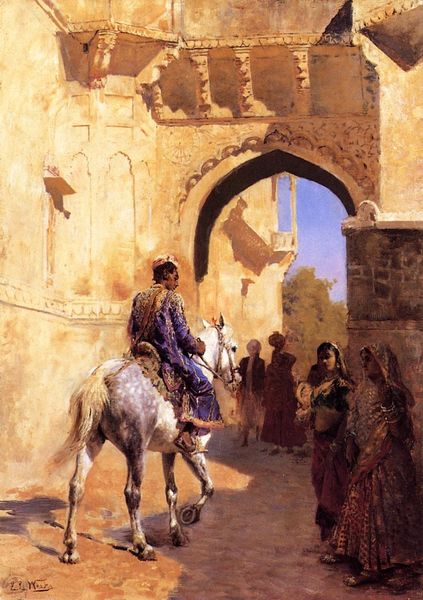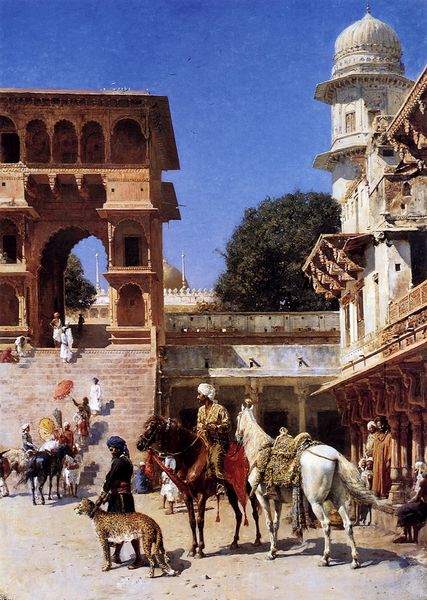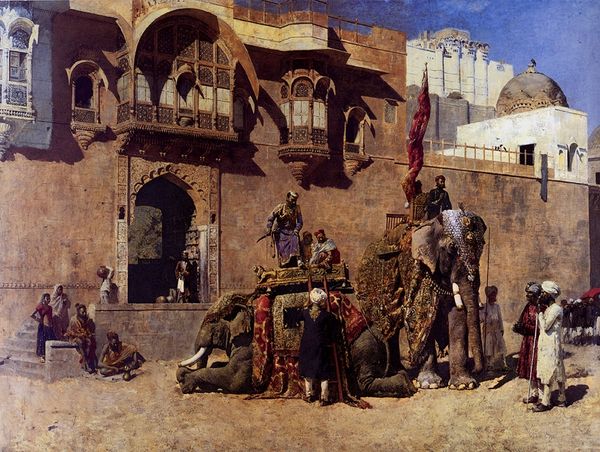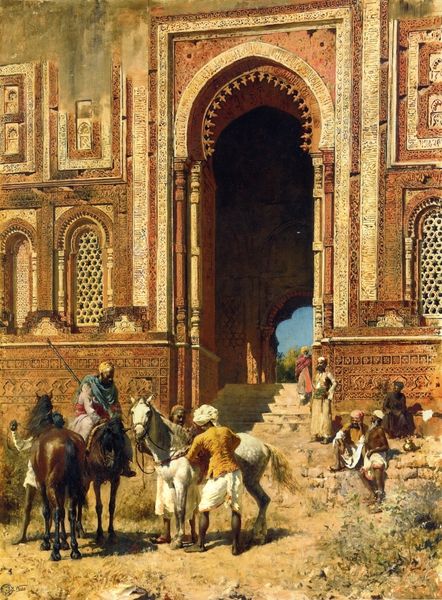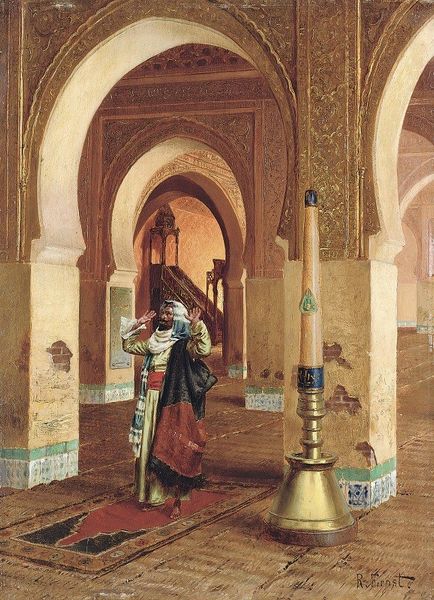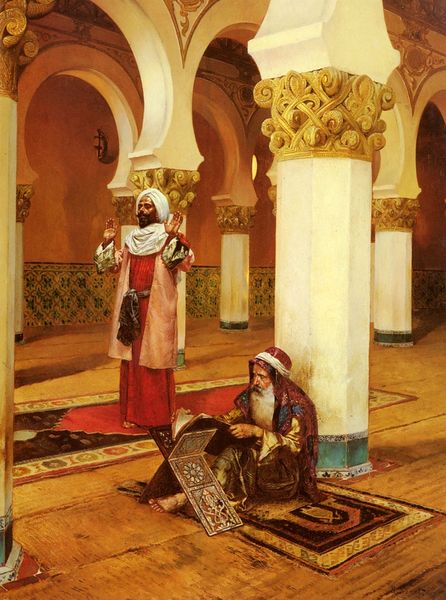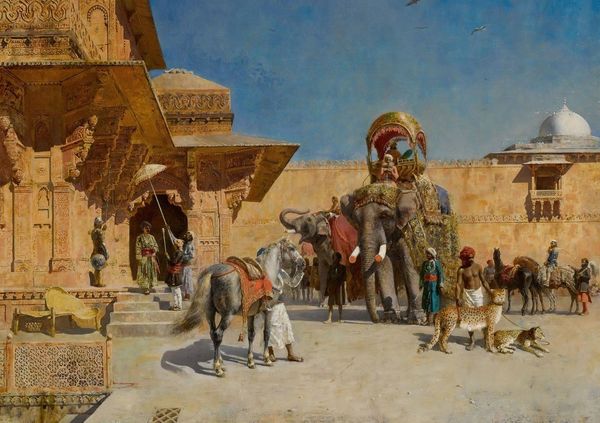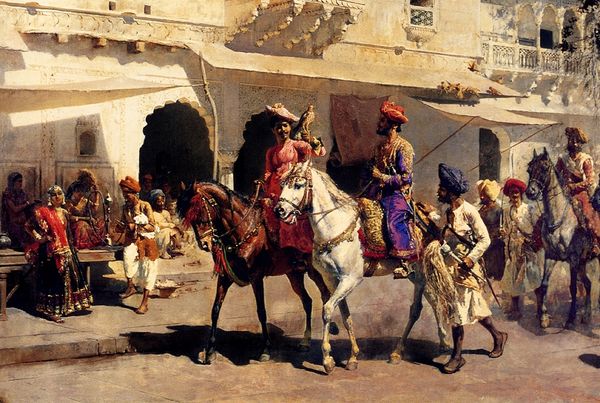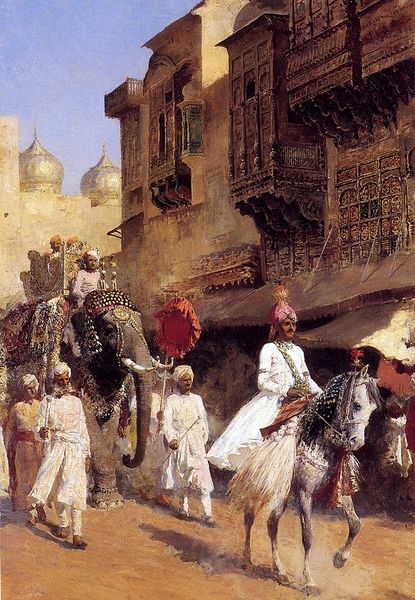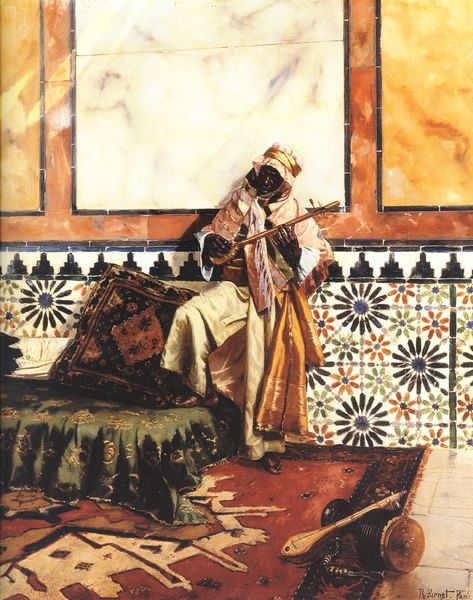
painting, watercolor
#
narrative-art
#
painting
#
asian-art
#
landscape
#
watercolor
#
orientalism
#
genre-painting
#
academic-art
Copyright: Public domain
Editor: Here we have Rudolf Ernst's "Royal Elephant", an undated watercolor painting. The composition and detail really strike me. It definitely sets a scene. How do you interpret this work? Curator: For me, it’s about cultural memory embedded in images. The elephant itself is a powerful symbol across Asian cultures, often representing royalty, wisdom, and memory itself. The howdah, the ornate seat, elevates the rider, signifying status and power, connecting us to centuries of hierarchical structures. Editor: That's interesting. I see it, but is it also perhaps about the Western gaze? Curator: Absolutely. Ernst, as an Orientalist painter, is also presenting a version of the "East" for a European audience. The meticulous detail, the focus on exotic elements... they catered to a Western fascination. Look at the archway. What does the ornamentation remind you of? Editor: Intricate patterns and maybe inscriptions, definitely pointing to a specific place or time period… maybe South Asia? It contrasts a bit with the realism of the elephant, though. Curator: Exactly. The tension between realistic depiction and romanticized imagery speaks to the complex dialogue between cultures – the observed and the imagined, history and fantasy. And how does that interplay affect *your* understanding of the image? Editor: It makes me think about how much of what we see is shaped by who is looking. Thanks, I will definitely remember that. Curator: Likewise, thinking about these symbols helps unlock so many meanings about power, representation, and cultural exchange.
Comments
No comments
Be the first to comment and join the conversation on the ultimate creative platform.
